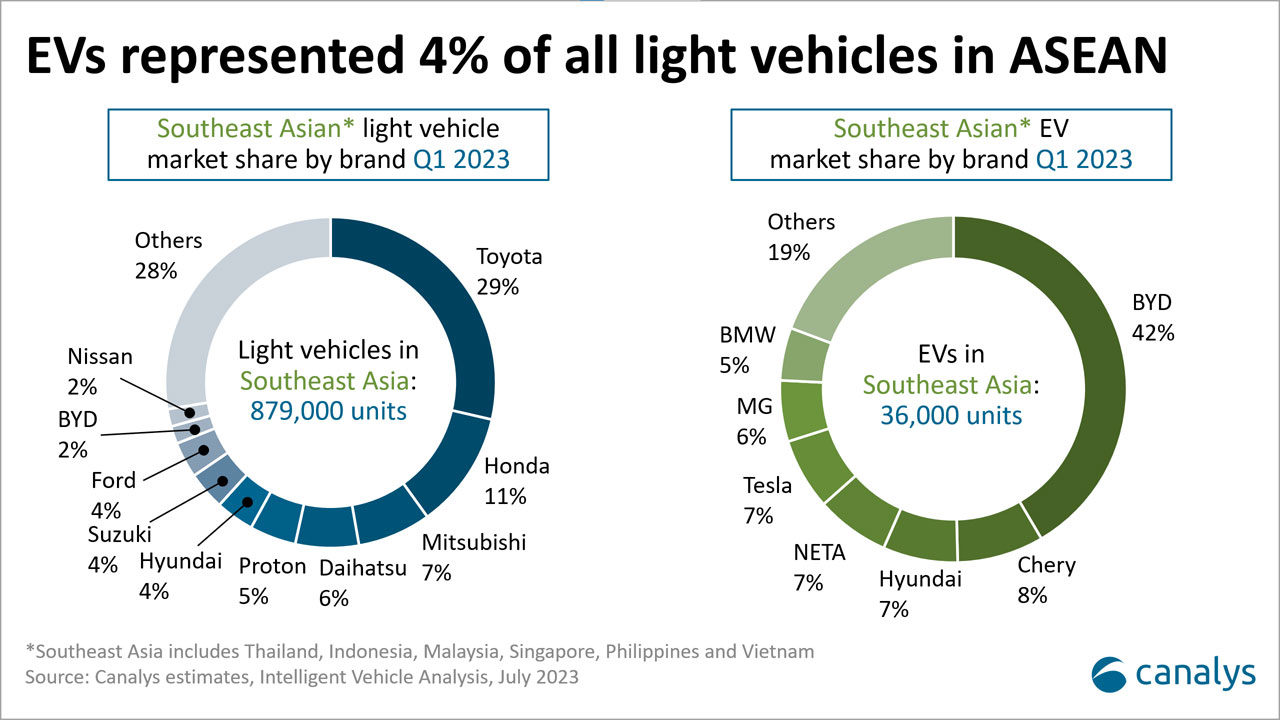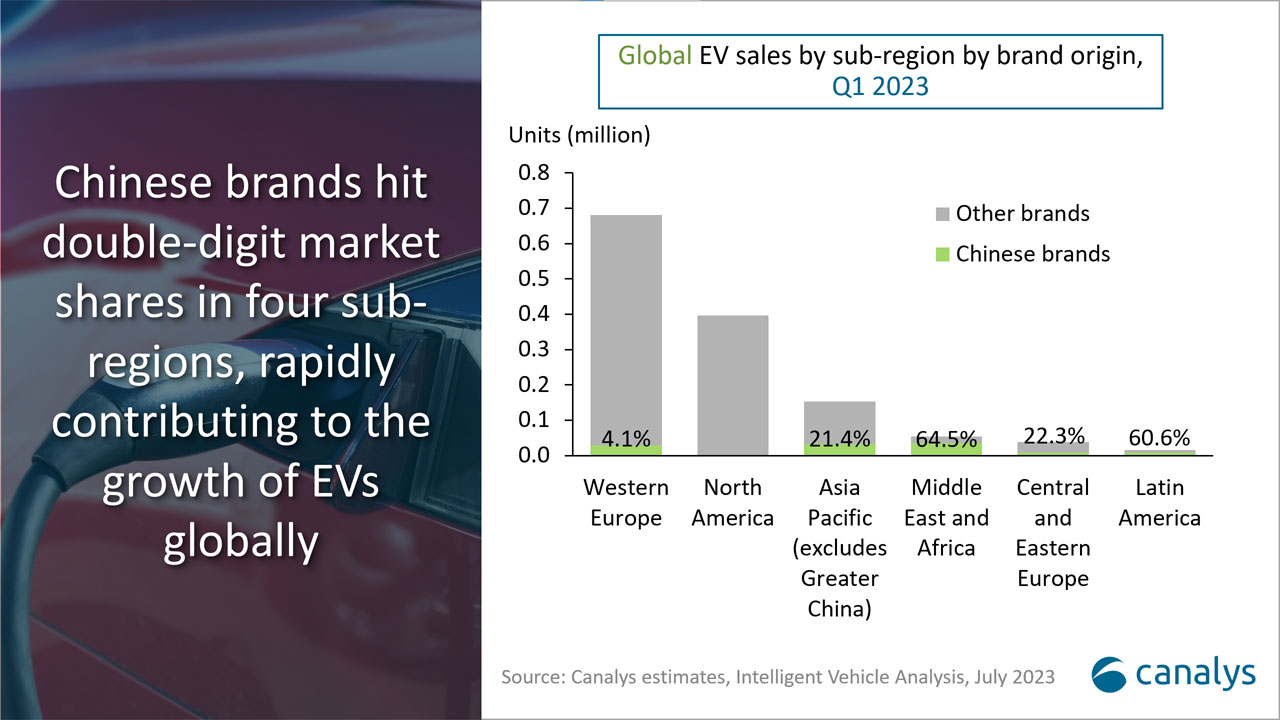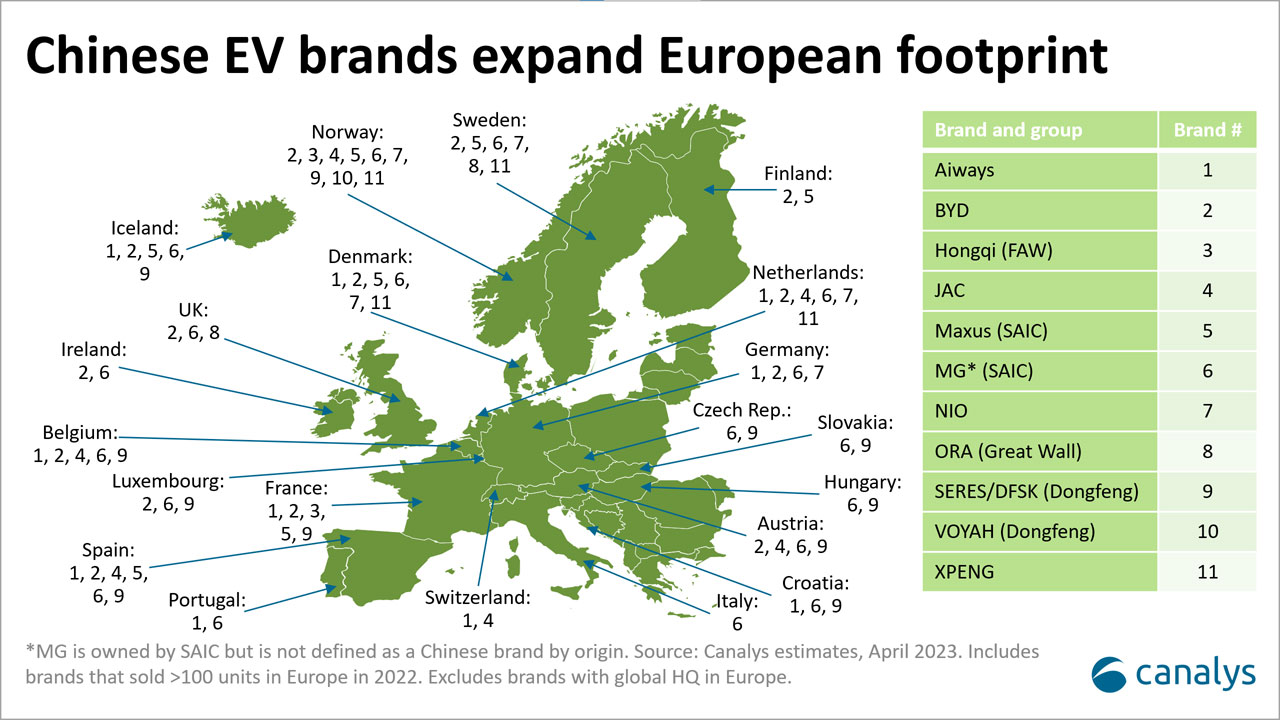Canalys Leadership Matrix - managed backup and disaster recovery 2023
31 July 2023

The rise of Chinese electric vehicles (EVs) is reshaping the global automotive industry, challenging established automakers and redefining consumer perceptions of Chinese automobiles. This blog explores the impact of Chinese EV expansion on the global market, technological advancements, strategic partnerships and the role of Chinese automakers in driving a sustainable future.

Recent mainstream media coverage in the automotive space has been dominated by the rise of electric vehicles (EVs), with particular emphasis on Chinese EV manufacturers’ invasion of new international markets. With a relentless focus on technology and an aggressive expansion strategy, it is important to recognize the potential impact of Chinese EV companies on the automotive industry. This blog summarizes the key data points and highlights the far-reaching implications of Chinese EVs on the global automotive landscape.
Chinese EV manufacturers have rapidly gained traction in international markets, significantly reshaping global market dynamics. While EV sales currently represent only 4% of all light vehicle sales in Southeast Asia, Chinese brands are dominating the charts in the EV segment (including BEVs and PHEVs) in the region. This shift indicates a disruptive force that is challenging established automakers and propelling Chinese EVs to the forefront of the global EV revolution.
With a strong foundation in the technology sector, Chinese automakers are capitalizing on consumers’ positive perceptions of Chinese technology products. As Chinese EVs enter new markets, they have the potential to redefine global consumers’ perception of Chinese automobiles, shedding the image of inexpensive and unreliable vehicles. These EVs serve as a springboard for Chinese automakers to enter higher price bands and gain a foothold in the premium segment, fundamentally altering the global automotive landscape.
Intense competition within China has forced automakers to seek growth opportunities abroad at an accelerated pace. Leveraging their improving EV technologies and robust supply chains, Chinese automakers can deploy aggressive strategies in international markets. External acquisitions, such as Geely’s ownership of Volvo Cars, give Chinese automakers a powerful advantage when expanding globally. Global players are reacting to the threat. They are forming strategic partnerships with Chinese manufacturers for battery and EV platforms, narrowing the gap and ensuring a competitive landscape on the global stage.

European markets have emerged as a key battleground for Chinese automakers. These markets offer EV tax incentives, a growing acceptance of electric mobility and rapidly expanding charging infrastructure. Chinese manufacturers are strategically targeting Europe with an increasing focus on premium vehicles. Success in Europe not only enhances their reputation but also contributes to economies of scale, bolstering their global and domestic market presence.

Chinese automakers are leading the charge in deploying Advanced Driver Assistance Systems (ADAS) and digital cockpit features. By collaborating with local solution providers, such as Horizon, Haomo and iMotion, they have developed intelligent driving features tailored to the domestic market. To achieve success globally, they must fine-tune these features to adapt to diverse driving habits and environments, ensuring their technology is relevant and competitive on a global scale. Chinese automakers’ more aggressive stance regarding technology integration will force competitors to follow suit, benefiting the technology supply chain.
To overcome initial challenges, Chinese automakers are forming regional technology partnerships outside of China. These collaborations enable them to gather valuable data and insights to further improve their vehicles and understand local market differences. By actively investing in Asia Pacific, the Middle East and Africa, Chinese automakers are spearheading the global push for EV development, receiving warm welcomes from governments seeking investment opportunities.
Chinese automakers face the challenge of managing high expectations while delivering innovative ADAS and digital cockpit features. Building a well-established ecosystem of EV infrastructure and connected services is a journey that requires collaboration with local partners. But this opens up opportunities for partnerships and investments, ultimately making Chinese automakers stronger in the global market.
Despite the emergence and growth of Chinese EVs in global markets, building consumer trust remains vital. Chinese manufacturers must focus on reliability and brand recognition to overcome hesitation among consumers. Collaborating with global automakers to address data privacy concerns and co-develop technologies can help instill confidence and build acceptance of Chinese EVs worldwide.
The rise of Chinese EVs signifies a transformative shift in the automotive industry, driving efforts to combat climate change. With advanced ADAS and V2X technologies on the horizon, Chinese automakers are poised to play a vital role in enhancing safety and addressing congestion issues.
In conclusion, the expansion of Chinese EVs is not only disrupting the global automotive landscape but also stimulating innovation and progress. As the world embraces electric vehicles during this decade, Chinese manufacturers are at the forefront, pushing boundaries and setting new benchmarks for the future of sustainable transport. Embracing these changes and fostering collaboration will be key to unlocking the full potential of EVs and achieving a greener, more connected automotive future.